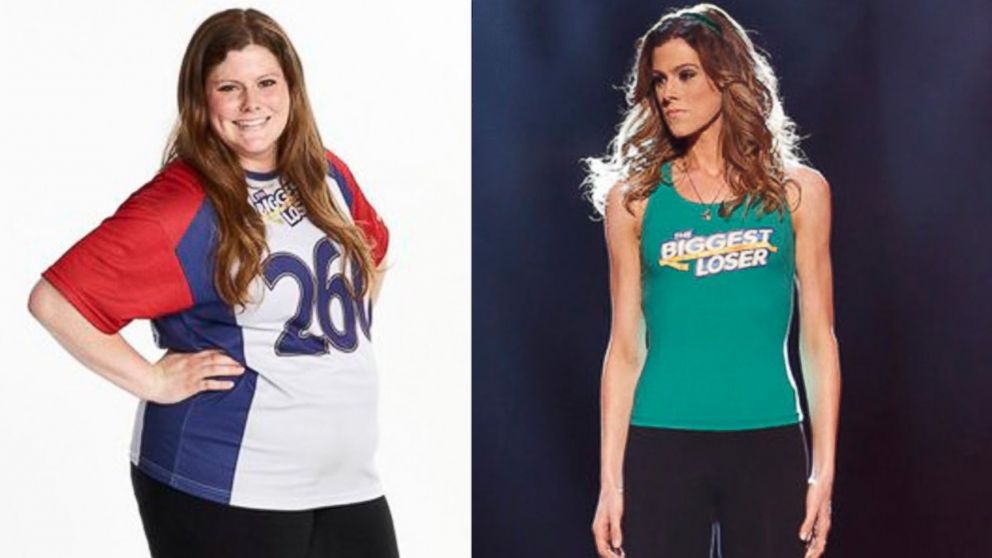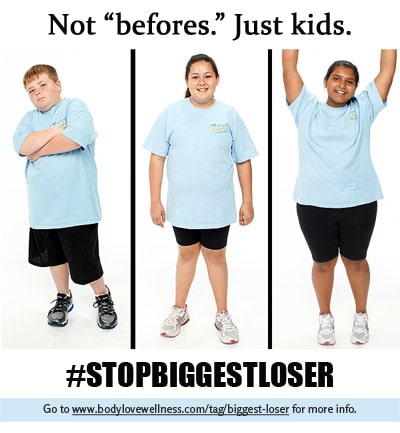The problem with The Biggest Loser is that it displays the exact opposite of motivation. The NBC program promotes the idea the that equals healthy, which is not true, and this is just the beginning of the show's display of unhealthy promotion.
"The Biggest Loser is another unrealistic 'reality' show," said Dr. Laura Machado of Sacramento in a recent Doctors of Weight Loss post. "The fact that people who suffer from obesity can lose large amounts of weight rapidly is nothing new. We evaluate every day who have achieved massive weight loss in the past, often on multiple occasions, only to regain the weight. Their propensity to be overweight is inherent and only permanently addressed with the anatomical changes that surgery offers. In medicine, we practice evidence-based treatments. Medicine has nothing to do with television ratings."
 |
| Source |
"When I was watching the show, at first I didn't think she was one of the contestants to be honest, said celebrity nutritionist Christine Avanti. "She looked thin, especially from the waist up."
And what kind of message is this sending? That it's easy to lose that drastic amount of weight in such a short period of time to become as much as underweight?
A Montclair-based psychotherapist who specializes in eating disorders, Beth McGovern expresses her concern for the message that Frederickson's weight loss could be sending to the people.
"It clearly is going to trigger them to think, 'OK, she can do that. I should be able to do that,' " said McGovern. "It presents a bad message to young women to see someone who looks somewhat malnourished... Being rewarded."
Another former contestant of the show agrees.
Season three contestant, Kai Hibbard, who lost 118 pounds was adamant about the fact that the the program is hurting it's contestants and promoting unhealthy body image.
"I have people come up to me and talk to me and ask me why they can't lose twelve pounds in a week when I did. It didn't happen. It's TV... a week is not a week in TV," said Hibbard. "I left with a very poor mental body image. I found myself loathing what I looked like the more weight that I dropped because of the pressure on me."
Hibbard told CBS' The Early Show that after the show, six other former contestants had said something similar. She also admitted that she had suffered from an eating disorder after leaving the show.
 |
| Source |
Last season, the show added three overweight children -- Lindsay, Sunny and Biingo. In The Biggest Loser's promotions, it may seem as if it's a good thing -- as if it will teach the kids how to eat healthy and exercise -- but you don't see the ugly.
What this does to kids is not only humiliates them... on national television, but it teaches to compete. This competition is comparing the way they look, and the one that looks the best -- or is the skinniest, I should say -- wins. This is showing children everywhere that the skinniest is the best, and for that, they get a grand prize of a bunch of money. The moral here: life is a competition based on looks, the skinniest looks the best, and gets a bunch of money. And how is this good for children?
The list goes on, so it's not difficult to say that it's means like these that are diminishing society's approach toward positive body image. Of course, good eating and exercise -- health -- is important, but slowly but surely, society is losing the real meaning of health. Instead of promoting healthy, this TV program is only a pathway of manipulation to promote diet products and obtain weight loss, even if it's not in a healthy way. It's obviously damaging to not only contestants, but viewers everywhere.

No comments:
Post a Comment